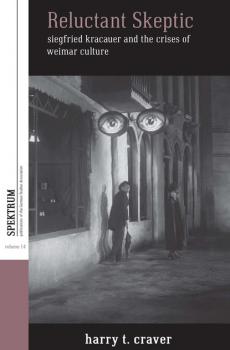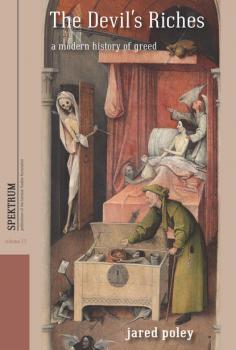Spektrum: Publications of the German Studies Association
Скачать книги из серии Spektrum: Publications of the German Studies AssociationThe Emperor's Old Clothes
For many years, scholars struggled to write the history of the constitution and political structure of the Holy Roman Empire. This book argues that this was because the political and social order could not be understood without considering the rituals and symbols that held the Empire together. What determined the rules (and whether they were followed) depended on complex symbolic-ritual actions. By examining key moments in the political history of the Empire, the author shows that it was a vocabulary of symbols, not the actual written laws, that formed a political language indispensable in maintaining the common order.
Dreams of Germany
For many centuries, Germany has enjoyed a reputation as the ‘land of music’. But just how was this reputation established and transformed over time, and to what extent was it produced within or outside of Germany? Through case studies that range from Bruckner to the Beatles and from symphonies to dance-club music, this volume looks at how German musicians and their audiences responded to the most significant developments of the twentieth century, including mass media, technological advances, fascism, and war on an unprecedented scale.
Money in the German-speaking Lands
Money is more than just a medium of financial exchange: across time and place, it has performed all sorts of cultural, political, and social functions. This volume traces money in German-speaking Europe from the late Renaissance until the close of the twentieth century, exploring how people have used it and endowed it with multiple meanings. The fascinating studies gathered here collectively demonstrate money’s vast symbolic and practical significance, from its place in debates about religion and the natural world to its central role in statecraft and the formation of national identity.
Reluctant Skeptic
The journalist and critic Siegfried Kracauer is best remembered today for his investigations of film and other popular media, and for his seminal influence on Frankfurt School thinkers like Theodor Adorno. Less well known is his earlier work, which offered a seismographic reading of cultural fault lines in Weimar-era Germany, with an eye to the confrontation between religious revival and secular modernity. In this discerning study, historian Harry T. Craver reconstructs and richly contextualizes Kracauer’s early output, showing how he embodied the contradictions of modernity and identified the quasi-theological impulses underlying the cultural ferment of the 1920s.
The Devil's Riches
A seeming constant in the history of capitalism, greed has nonetheless undergone considerable transformations over the last five hundred years. This multilayered account offers a fresh take on an old topic, arguing that greed was experienced as a moral phenomenon and deployed to make sense of an unjust world. Focusing specifically on the interrelated themes of religion, economics, and health—each of which sought to study and channel the power of financial desire—Jared Poley shows how evolving ideas about greed became formative elements of the modern experience.
Walls, Borders, Boundaries
How is it that walls, borders, boundaries—and their material and symbolic architectures of division and exclusion—engender their very opposite? This edited volume explores the crossings, permeations, and constructions of cultural and political borders between peoples and territories, examining how walls, borders, and boundaries signify both interdependence and contact within sites of conflict and separation. Topics addressed range from the geopolitics of Europe’s historical and contemporary city walls to conceptual reflections on the intersection of human rights and separating walls, the memory politics generated in historically disputed border areas, theatrical explorations of border crossings, and the mapping of boundaries within migrant communities.
Conversion and the Politics of Religion in Early Modern Germany
The Protestant and Catholic Reformations thrust the nature of conversion into the center of debate and politicking over religion as authorities and subjects imbued religious confession with novel meanings during the early modern era. The volume offers insights into the historicity of the very concept of “conversion.” One widely accepted modern notion of the phenomenon simply expresses denominational change. Yet this concept had no bearing at the outset of the Reformation. Instead, a variety of processes, such as the consolidation of territories along confessional lines, attempts to ensure civic concord, and diplomatic quarrels helped to usher in new ideas about the nature of religious boundaries and, therefore, conversion. However conceptualized, religious change— conversion—had deep social and political implications for early modern German states and societies.
Weimar Publics/Weimar Subjects
In spite of having been short-lived, “Weimar” has never lost its fascination. Until recently the Weimar Republic’s place in German history was primarily defined by its catastrophic beginning and end – Germany’s defeat in 1918 and the Nazi seizure of power in 1933; its history seen mainly in terms of politics and as an arena of flawed decisions and failed compromises. However, a flourishing of interdisciplinary scholarship on Weimar political culture is uncovering arenas of conflict and change that had not been studied closely before, such as gender, body politics, masculinity, citizenship, empire and borderlands, visual culture, popular culture and consumption. This collection offers new perspectives from leading scholars in the disciplines of history, art history, film studies, and German studies on the vibrant political culture of Germany in the 1920s. From the traumatic ruptures of defeat, revolution, and collapse of the Kaiser’s state, the visionaries of Weimar went on to invent a republic, calling forth new citizens and cultural innovations that shaped the republic far beyond the realms of parliaments and political parties.









